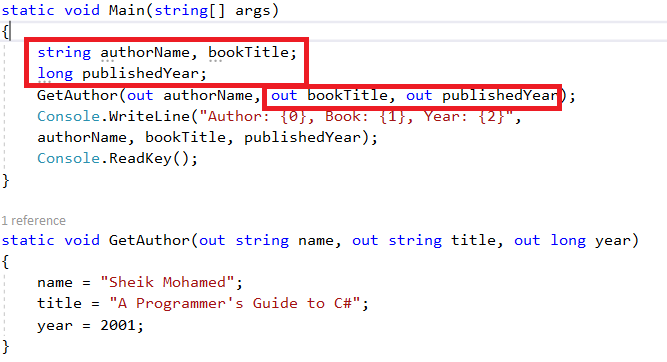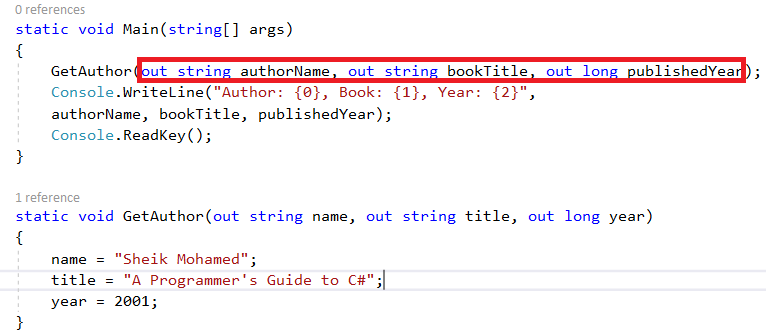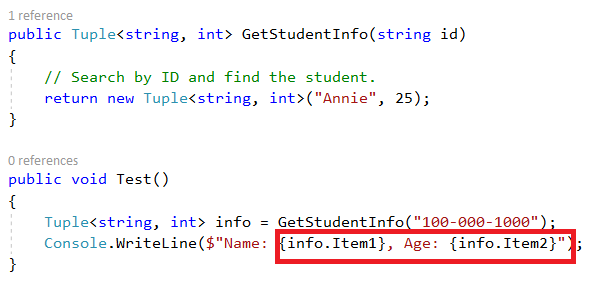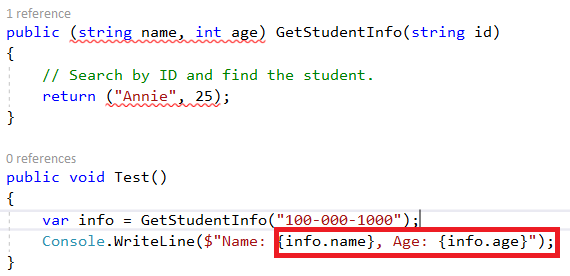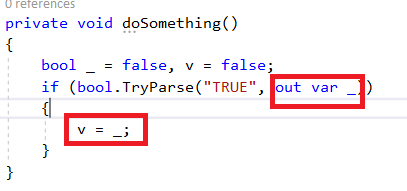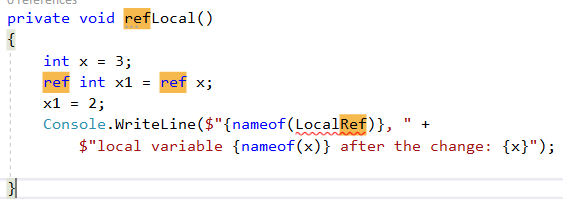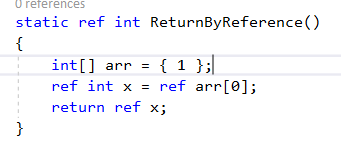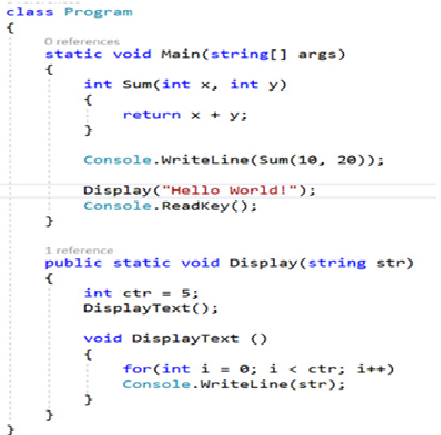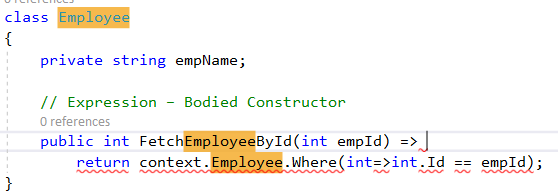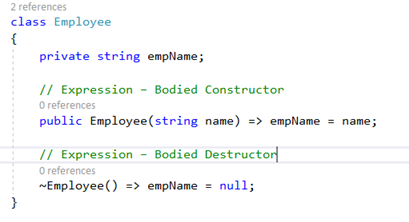C# 7.0 Features
Last article we have looked the features of C# 6.0, so in this article we will see the features of C# 7.0
| C# 7.0 | March 2017 | .NET Framework 4.6.2 | Visual Studio 2017 |
out Keyword
The out parameter can be used to return the value in the same variable and as a parameter of the method, if any changes made to that parameter it will reflect the changes to that out variable.
In earlier version
In C# 7.0
Here no need to declare it separately, specify directly in the argument itself.
Tuples
C# tuples as richer anonymous types, it’s a set of elements.
You can access name and age by referencing Item1 and Item2.
In C# 7.0
Here we can directly get the name and age instead of Item1 and Item2
Discards
Discards are equivalent to unassigned variables, that variable may not even be allocated storage
They don’t have names, instead, they are represented as a _ (underscore.)
Pattern Matching
It’s not new to C#, in the earlier version itself introduced but in the coming version its added some more features in the implementation.
- Pattern matching has the ability to extract the data from the expression.
- Pattern matching can be used with any data type including custom whereas if/else can only be used with primitive types.
In C# 7.0, introduced 2 more features like “Is expression” and “Switch case statement”
With “Is” pattern
Pattern with Switch…case statement
Now Switch…case statement also works with expression as well.
Ref local and returns
Ref Locals
Before C# 7.0 it was not possible to declare the return type with the ref modifier. While this feature was available using IL code, the feature was not reflected with C#. This changes with C# 7.0. However, before looking into this, let’s get into another new C# 7.0 feature: ref locals. Local variables can be declared with the ref modifier. Here, the variable x1 references variable x, and thus changing x1 changes x as well
output: local variable x after the change: 2
Ref Returns
The ref keyword can also be used with the return type. This allows code as shown in the following code snippet. Here, an array of type int is declared and initialized. In the next line, a local ref variable is declared that references the first element of the array. This variable is then returned in the last statement of the method
Local Functions
Local functions enable you to define a function within the scope of another method to help in promoting encapsulation and bring local variables into scope.
More expression-bodied members
Expression-bodied methods was introduced with C# 6.0, that simplify the syntactic expression for methods in C#. We have seen this for Methods and Properties in the previous version of C#. C# 7.0 extend this features for several new members including constructor, destructor, property assessors etc.
In earlier version
In C# 7.0
Throw expression
C# 7.0 introduces throw expressions. We can add exception throwing to expression-bodied members, null-coalescing expressions and conditional expressions. This blog post introduces throw expressions, demonstrates how to use them and also provides a peek behind a compiled throw expression.
Generalized async return type
Running a Task from async methods can introduce performance bottlenecks in certain paths.
Ever since C# 5.0 when the async/await pattern was introduced, the only supported return types were Task<TResult>, Task, and void
If the directory is empty, the known space is 0 and there is no need for an asynchronous thread to calculate the size. However, since Task<long> is the return, it still needs to be instantiated.
By using ValueTask<….> we don’t want to instantiate the Task<long>, it can return Task or Task<long> and so on.
Numeric literal syntax improvements
The digit separator “_” can be used inside number literals now. The purpose of a digit separator is to improve readability, nothing more
public const int One = 0b0001;
public const int Two = 0b0010;
public const int Four = 0b0100;
public const int Eight = 0b1000;
public const int Sixteen = 0b0001_0000;
Note: 0b -> indicates as binary
Conclusion
I hope this article will help much to understand the features of C# 7.0, in the next article we will see the features of C# 7.1 and 7.2

